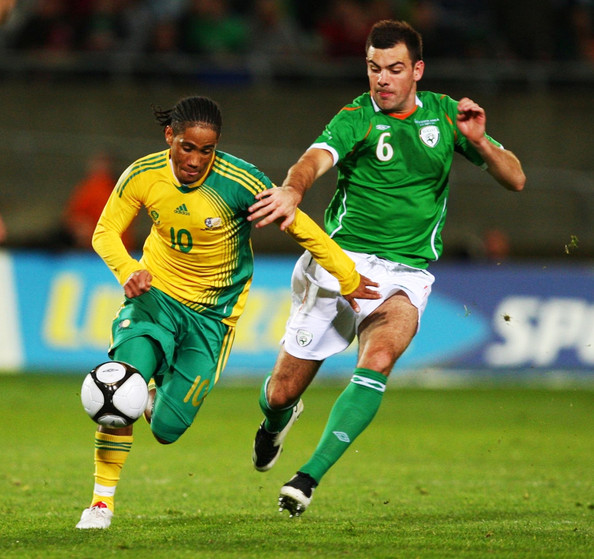Robbie Fowler once said that “when I walk into a bar, I know that half the guys in there want to give me 20-30 beers, while the other half just want to beat me down.”
On one side of the River Foyle, in the Northern Ireland city of Derry (Londonderry later) was where Darron Gibson born. Since “The Troubles” and specifically the Bloody Sunday 1972, when 13 unarmed Catholics were killed by the British army during a march for civil rights, the segregation and sectarianism between Protestants and Catholics was etched in the city. Much of the Protestant minority has fled Londonderry, and the few who remain have settled on the west side of Foyle. Despite the symbolic change of name from Derry to more unionist sounding Londonderry, it is therefore Catholics who constitute a majority in the city.
The most telling example of how strong the connections are between Londonderry and the neighboring country of Ireland is actually apparent from soccer . Because when Derry City F.C. travels on away trips, it is not to Belfast, Ballymena and Newry, but to Donegal, Galway and Dublin. A Northern Ireland team playing in the Irish league.
*********
Darren Gibson began his soccer career at home in the city’s amateur league and then moved to the Institute FC before at age of 17 going to Manchester United.
Without having the stamina of Fletcher, Anderson energy, Carrick’s ability to distribute the ball and Scholes’ game intelligence, he has at least provisionally taken a place in the Man U squad,
*********
Even before an A-team’s establishment had Ireland and Northern Ireland take a liking to Gibson’s skill on the pitch, and the drug is now entering the main character in one of the most complex litigation team ever.
Gibson himself had already decided, he would represent Ireland. Sure, he played for Northern Ireland as a “schoolboy”, but it was of little importance. When Steve Staunton took him out of Ireland squad in 2008 – and also wanted to use him as Gibson was pleasantly surprised. For many, the question was far more complex than a single man’s will. Gibson had, after all, neither the parents, grandparents or grandparents were from Ireland, which complicated matters further. This or two spent years in the country required course for that according to FIFA rules will be available for representation. The point is simply that every citizen on the island of Ireland also has the right to assert their identity as Irish. This was the law that finally gave Gibson the opportunity to represent Ireland.
The case was widely known and soon became an important issue on the island. Northern Ireland, particularly unionists, felt let down after all the work you put into overcoming the divisions between peoples, and they had earlier done well to include Catholics in their team. On the other hand, the Nationalists felt that the treatment of the Catholic Neil Lennon (including death threats) who chose to play for Northern Ireland more than justified a man’s free choice to represent the country he identifies with. You can not just sacrifice the people of a higher purpose.
The then Northern Ireland Sports Minister Edwin Potts and other unionists had already tabled a motion that would make it harder for players to “change the country”, but nationalist parties said no to the proposal.
The debate continued, the arguments were similar. Unionists argued that there was a huge setback for efforts to bring unity to the nation, while among the nationalists argued that one can not force anyone to represent a country that you certainly do not identify with. And it was not only Gibson, although Stokes Marc Wilson and Everton’s Shane Duffy (born in Northern Ireland) had chosen to play for Ireland, so the question illustrates rather a tendency than an isolated aberration. It describes a particularly delicate problem on the island of Ireland right now. Gibson himself said:
“It was unbelievable you know, making the debut for your country. Everyone from Derry wants to play for Ireland. I grew up supporting Ireland, so it was a natural choice for me ”
Clearly fed up with all the talk about politics and affiliation so he also says:
“I’ma Republic of Ireland player and I always will be. That’s not going to change. Honestly, there was no politics at all in my decision making. It was purely football reason, to try and play at the highest level with my country. ”
How much he wishes that this were the case, I would still use this story as a prime example of that football is very often end up in the political sphere.
*********
The only thing we could wish for us now that Gibson enters a pub in the future is that the majorit buy him beers.
